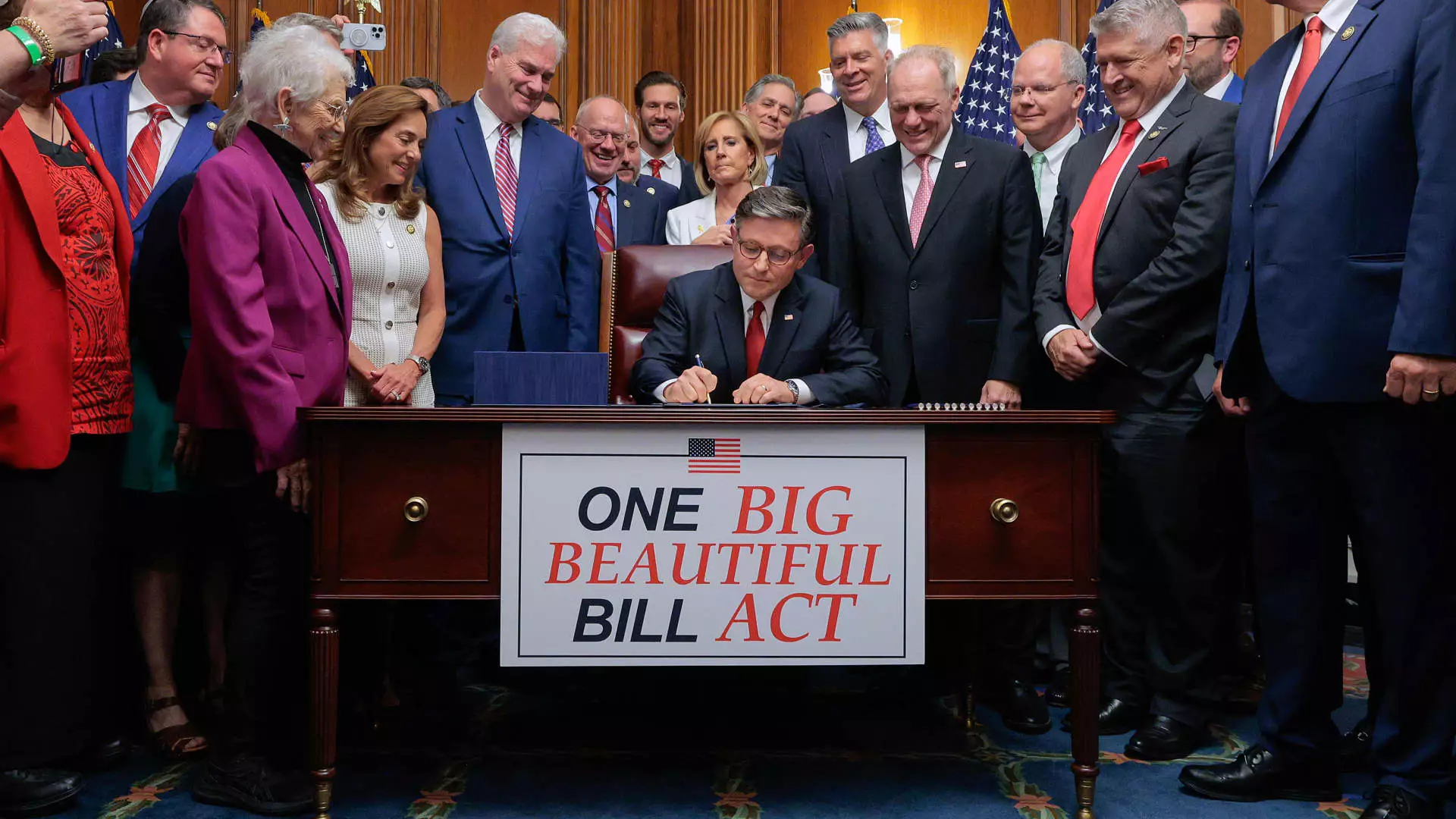In the wake of President Trump’s so-called “big beautiful bill,” many Americans are enticed by the promise of streamlined tax benefits and robust family support. However, this legislation, far from being a straightforward boon, reveals itself as a complex web that benefits some while blindsiding others. Shrewd financial strategists understand that the narrative spun for political gain often hides a more troubling reality: not all taxpayers are created equal, and many will find themselves caught in unintended, even damaging, traps. As a nation that increasingly relies on government policy to shape economic opportunity, it’s critical to scrutinize who truly benefits—beyond the soundbites and headline figures.
The Illusory Gains: Who Truly Wins?
At first glance, raising the standard deduction—an increase from $15,000 to $15,750 for singles and from $30,000 to $31,500 for joint filers—appears as a win. But dig deeper, and the picture becomes murkier. For middle-income families, these adjustments are modest, offering little in the way of substantial relief amidst rising living costs. Meanwhile, those earning well above $600,000—once the supposed beneficiaries—face a new “SALT torpedo,” a devastating tax trap that can push effective rates as high as 45.5%. This targeted penalty, disguised as a tax cap, effectively penalizes higher earners with significant state and local tax burdens while offering minimal relief, revealing an underlying bias that favors wealth redistribution towards a narrow elite rather than broad-based economic fairness.
Tax Cuts with a Cost: The Fallacy of Prosperity for All
Though claimed as a victory for working families, the legislation’s true hold on prosperity is conditional and uneven. The temporary deduction of $6,000 for seniors, for instance, appears to be a generous gesture but is riddled with phaseout thresholds that leave many households in limbo. The reality is that these targeted benefits risk becoming mere Band-Aids on a gaping wound of economic inequality. Furthermore, the elimination of pandemic-era premium tax credits threatens to deepen the affordability crisis in healthcare, disproportionately affecting those who can least afford rising premiums. This strategic oversight—allowing subsidies to expire—exposes the bill’s superficial commitment to working families, revealing it as more of a political act than a substantive economic policy.
Complexity as a Weapon of the Wealthy
One of the most troubling aspects of the legislation is its layering of provisions that seem benign until scrutinized closely. The increase in the SALT deduction cap to $40,000, for example, appears beneficial—yet it stimulates a paradox where high earners in high-tax states enjoy a windfall while others get comparatively little. The “sweet spot” for the SALT deduction occurs in a narrow income window, essentially creating an exclusive tax loophole benefiting the wealthy and powerful. Such targeted loopholes erode the fairness of the tax system, reinforcing the notion that policy design often favors those with the resources to navigate its labyrinth—the very people who already command disproportionate influence over economic policy.
The Myth of Universal Policy Success
Promoting the legislation as a “working family” win is fundamentally misleading. The reality is that many Americans will not see tangible benefits, and some will face increased hardships if they rely on the now-vanished pandemic-era health subsidies or continue to grapple with rising taxes on their income. The bill’s failure to extend the ACA subsidies signals a clear choice: the administration’s priorities appear skewed toward maintaining fiscal conservatism for the wealthy rather than fostering genuine economic mobility. For center-left liberals who believe in a fairer distribution of opportunity, this legislation underscores the urgent need for policies that prioritize equitable growth over superficial tax cuts that serve the wealthy at the expense of the middle class.
The Road Ahead: A Call for Critical Engagement
As Americans prepare for the ramifications of these tax changes in their 2026 filings, a deep-rooted skepticism of partisan narratives is essential. The complexities embedded within this legislation highlight how the pursuit of political ideology often complicates and distorts genuine economic progress. It’s not enough to cheer for tax cuts or lament for social programs; we must advocate for policies rooted in fairness, transparency, and long-term stability. True economic well-being cannot be achieved through superficial tweaks or targeted loopholes—it requires a collective reckoning with the structural inequalities that persist at the heart of our tax system.

